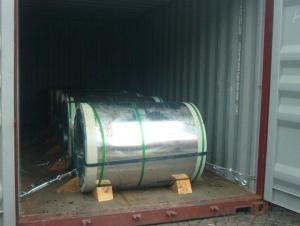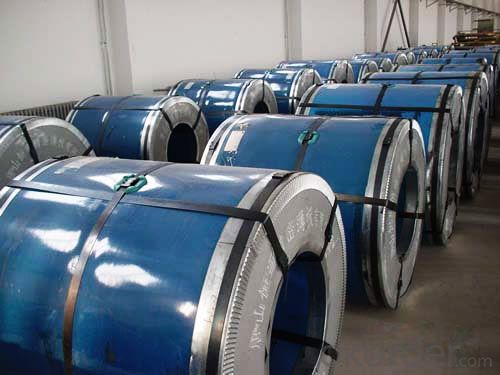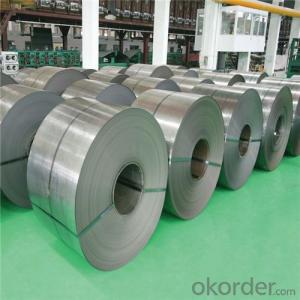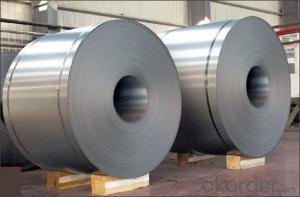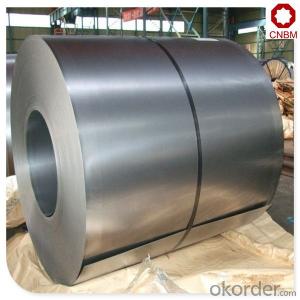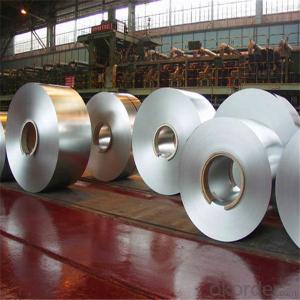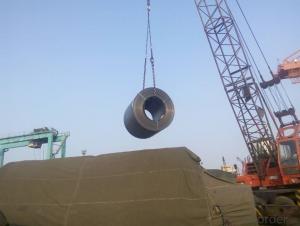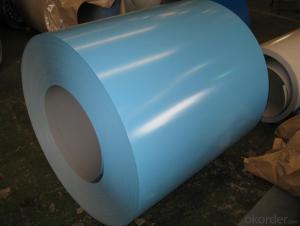Galvanized Steel Coil Prime Quality Hot sSale Zn 275 Low Price
- Loading Port:
- Tianjin
- Payment Terms:
- TT OR LC
- Min Order Qty:
- 10 m.t.
- Supply Capability:
- 10000000 m.t./month
OKorder Service Pledge
OKorder Financial Service
You Might Also Like
1.Description of Prepainted Galvanized Steel Coil and Color Coated Galvanized Steel Coil:
The galvanized steel coil that most construction workers use is often found in roofing applications. There, it is used as a protective cover or barrier over ridges and valleys in the roof system. The coil is rolled out flat on the roof, and bent either over the top of a ridge or into the crease in a valley, to protect the seam in the roof’s sheeting from exposure to the elements. It also creates a watershed for the runoff of rain and melting snow or ice.
2.Specifications of Prepainted Galvanized Steel Coil and Color Coated Galvanized Steel Coil:
Surface type: Normal spangle, min-spangle, free-spangle;
Surface treatment: chromated, unoiled/oiled, bright finished.
Main Usage : General use for Roof, Corrugated roofing making, The outside of buildings, Structures, Tile row plates, Deep drawing and deep drawn,etc
3.Prepainted Galvanized Steel Coil and Color Coated Galvanized Steel Coil Images:
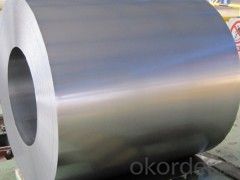
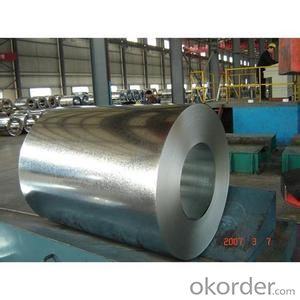
4.Prepainted Galvanized Steel Coil and Color Coated Galvanized Steel Coil Specification:
Standard: AISI, ASTM, BS, DIN, GB, JIS | Steel Grade: Q195-Q235 | Thickness: 0.20mm-3.0mm |
| Place of Origin: Hebei China (Mainland) | Technique: Cold Rolled | Surface Treatment: Galvanized |
| Application: drywall studs,ceiling bars.pipe et... | Model Number: WL-400 | Brand Name: Sanli |
| Width: 32-680 mm | Length: 187m-4549m | WL05: GI strip50 |
5.PACKING:
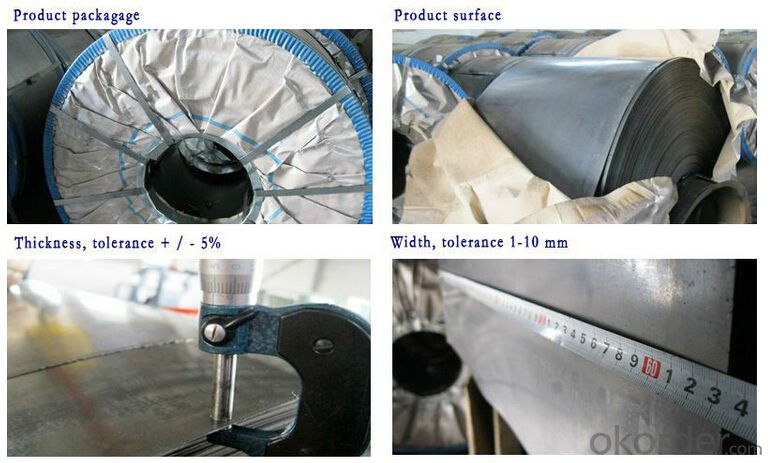
6.FAQ
We have organized several common questions for our clients,may help you sincerely:
①How about your company?
A world class manufacturer & supplier of castings forging in carbon steel and alloy steel,is one of the large-scale professional investment casting production bases in China,consisting of both casting foundry forging and machining factory. Annually more than 8000 tons Precision casting and forging parts are exported to markets in Europe,America and Japan. OEM casting and forging service available according to customer’s requirement.
②How to guarantee the quality of the products?
We have established the international advanced quality management system,every link from raw material to final product we have strict quality test;We resolutely put an end to unqualified products flowing into the market. At the same time, we will provide necessary follow-up service assurance.
③How long can we receive the product after purchase?
In the purchase of product within three working days, We will arrange the factory delivery as soon as possible. The pecific time of receiving is related to the state and position of customers.Commonly 7 to 10 working days can be served.
- Q: How are steel coils used in the production of metal enclosures?
- Steel coils are used in the production of metal enclosures as they provide the raw material needed for forming and shaping the enclosure. The steel coils are processed and cut into sheets or strips, which are then bent, welded, or stamped to create the desired shape and structure of the enclosure. These steel sheets offer strength, durability, and a smooth surface finish to the final product, making them ideal for manufacturing metal enclosures used in various industries such as automotive, electronics, and construction.
- Q: How are steel coils used in the production of conveyor systems?
- Steel coils are used in the production of conveyor systems as they are formed into various components such as conveyor belts, pulleys, and rollers. These components provide strength, durability, and flexibility to the conveyor system, ensuring smooth movement of materials along the conveyor and enhancing its overall performance.
- Q: How are steel coils used in the production of kitchen appliances?
- Steel coils are used in the production of kitchen appliances as they are shaped, cut, and formed into various components such as bodies, doors, panels, and frames. These coils provide the necessary strength, durability, and stability required for the construction of kitchen appliances, ensuring the longevity and reliability of the finished products.
- Q: Is it possible to have a 25 room Hotel building with Steel structure. Thay is instead of traditional RCC can we have a 25 room hotel constructed using steel construction? Is it economic and how much time will it take to construct the same? Appraximate area would be 5000sq.ft to 10000sqft.
- it is possible...but with the current ever rising cost of steel...it is more expensive than reinforced concrete..... ...one more disadvantage is tat u have to use large I sections for the columns as steel do not take compression as good as concrete... ..tat is why u see..almost all totally steel structures are bridges where tensile strength rules more than compression.
- Q: What are the different types of packaging for steel coils?
- The different types of packaging for steel coils typically include wooden crates, steel frames, and plastic wrapping. These packaging materials are used to provide protection and secure the steel coils during transportation and storage.
- Q: Where can I find a discount online for Stainless Steel Magnetic Knife Rack
- listed under are a number of them: 5.0 out of 5 stars could no longer be extra effective, March 3, 2006 by applying Denise M. Henderson (Groveland, CA united states of america) stable sturdy shape. seems great. common installation. appropriate length. Magnet appropriate capability. only confirm you place the back of the blade to the magnet first, then turn the knife flat onto the magnet. or you will cut back to rubble the knife blade. 5.0 out of 5 stars purchase it!, November a million, 2004 by applying T. Berktan (Le chef amateur) (Chicago, IL) i admire this knife holder. at first it rather is sanitary. would not take counter area and IT seems SO COOL on the wall. i might purchase it lower back with out hasitation if I had to. 5.0 out of 5 stars Very clever and seems great!! i like it!!, August 24, 2005 by applying Stacy S. Wooten i in my opinion, rather like this knife holder. It replaced into common to place up and seems great on my kitchen backsplash. it rather is long sufficient to hold all my knifes (approximately 8). it rather is a competent, stable magnet, and seems very stylish in my kitchen. i might surprisingly propose this product to everyone searching for a magnetic knife holder.
- Q: I have one and need info about it??....It has a wooden case around the steel necks.and 20 strings,Twin Tens.
- well, it was made sometime before 1981, because that's when Fender quit making 10 string steel guitars. Without any more information than what you've given me, it could be the Pedal 2000, the PS210, or the Artist Dual 10. Fender made steel guitars from the 1950s through 1981, so it could be from any time in there. I hope you have the pedals with it. The 10-string and dual 10-string models were quite expensive in their day. Unfortunately, if you're thinking of reselling it, you're probably not going to get a lot of money for it unless you find a pedal steel player, and like I said, having all the pedals is very important in that case. Anyway, hope this helped. Good luck. If I were you I'd learn to play it. Pedal steel players are always in demand.
- Q: melting point, as compare to stainless steel
- Mild steel melting point is 1350-1530°C (2462-2786°F). Stainless steel is 1510°C (2750°F)
- Q: Steel being my favorite type, I just picked up Heart Gold today, my gf got Soul Silver...I was wondering which steel types are available and somewhat easily obtainable in HG (and/or what is the earliest steel type I can get?)
- There aren't many Steel types in the Johto and Kanto regions. You'll have to rely on trading from Sinnoh and Hoenn to get most of the Steel types. In Soul Silver you can get a Skarmory on Rt 43, I believe. Ask your gf to catch you one when she gets there.
- Q: How are steel tape measures installed?
- Today, I met similar situations at work! Accidentally pull the head, and then automatically can not go back, after opening, winding, after installation, can not automatically withdraw! After a long time, we suddenly noticed that we neglected a small place!
Send your message to us
Galvanized Steel Coil Prime Quality Hot sSale Zn 275 Low Price
- Loading Port:
- Tianjin
- Payment Terms:
- TT OR LC
- Min Order Qty:
- 10 m.t.
- Supply Capability:
- 10000000 m.t./month
OKorder Service Pledge
OKorder Financial Service
Similar products
Hot products
Hot Searches
Related keywords
